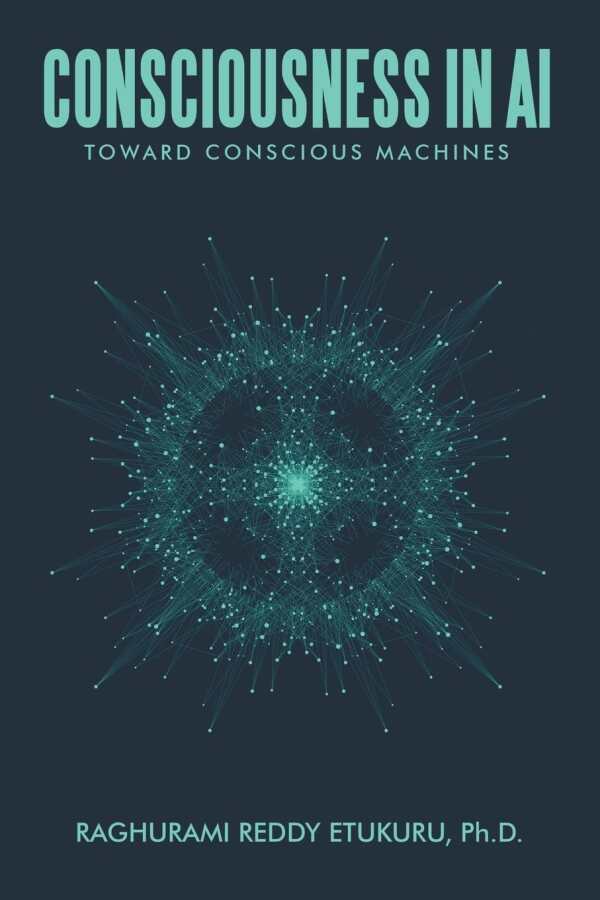Consciousness in AI
Toward Conscious Machines
A pressing technology and philosophy text, Consciousness in AI applies contemporary and ancient insights to the ethical dilemmas around AI.
Raghurami Reddy Etukuru’s compelling treatise on emergent consciousness in machines, Consciousness in AI, synthesizes ancient Vedic texts with later philosophies of the mind, melding quantum mechanics with advances in neuroscience.
Bolstered by robust research, the book develops an argument for the possibility of the emergence of consciousness in artificial intelligence. In particular, it explores the possibility of mechanical consciousness borne of vast, complex neural networks, quantum computers, and embodied robotic intelligences. It even proposes that consciousness may be a form of quantum field made manifest by human interactions with that field.
These complex explorations are built on a foundation of millennia of human progress, literature, and thought. Complex ethical dilemmas about the meaning of personhood are raised and classic methods of testing machine consciousness, including the Turing Test, are critiqued; the book cites the difficulty of determining whether a machine is enacting and simulating conscious behavior or experiencing it in a manner consistent with a sentient being. The increasing complexity in deep learning models and advances in quantum computing render this a relevant, pressing treatment of ongoing ethical dilemmas around AI.
This book is vast in its scope and range. In addition to thinkers like René Descartes, it incorporates insights from neuroscience, quantum mechanics, and quantum field theory. However, formal citations are absent, undermining its authority on these subjects. Further, much of its groundwork is laid in its first half, which mentions the central premise of consciousness in AI only in brief, though this thread is picked up and handled in a thorough manner as the book continues. The book’s synthesis of the physical sciences, philosophies of mind, and consciousness in artificial agents is thorough but dispersed; it handles topics in the chronological sequence of their historical context, and the work of tying these pieces together is held off until the final chapters, which are written with finesse.
The book’s alignment of quantum field theory with ancient Vedic philosophies about the mind is novel and surprising. At times, it veers too far into the realm of mysticism and theoretical sciences, but it does an able job of supporting this approach by aligning it with the ineffability of consciousness. Its ventures into unknown realms are informed both by sound scientific principles and healthy skepticism.
Consciousness in AI is a riveting technology text about how consciousness might arise in artificial intelligence.
Reviewed by
Caitlin Cacciatore
Disclosure: This article is not an endorsement, but a review. The publisher of this book provided free copies of the book and paid a small fee to have their book reviewed by a professional reviewer. Foreword Reviews and Clarion Reviews make no guarantee that the publisher will receive a positive review. Foreword Magazine, Inc. is disclosing this in accordance with the Federal Trade Commission’s 16 CFR, Part 255.

